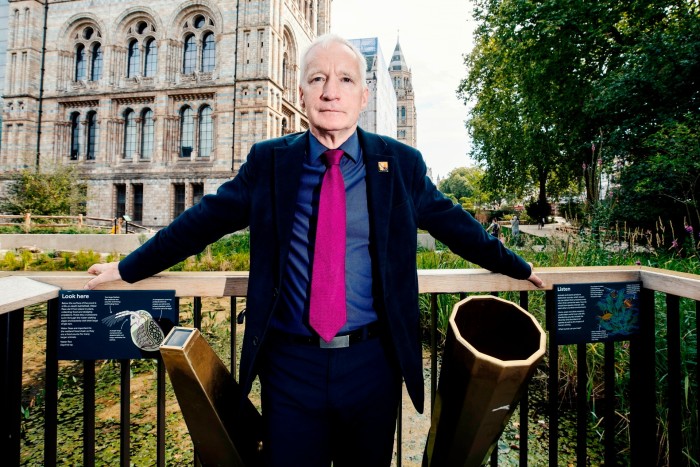Unlock the Editor’s Digest for free
Roula Khalaf, Editor of the FT, selects her favourite stories in this weekly newsletter.
Ministers have forced out the chair of the UK Competition and Markets Authority, as the government seeks to dial back regulation as part of Labour’s growth agenda.
The government confirmed the departure of Marcus Bokkerink as chair of the CMA on Tuesday evening, after the Financial Times reported that business secretary Jonathan Reynolds had intervened at the agency.
The Department for Business and Trade made clear to Bokkerink on Monday that it felt the regulator was not sufficiently focused on growth, according to one government figure.
Bokkerink, a former managing director at Boston Consulting Group, was appointed in 2022. CMA chairs can serve up to a five-year term.
The government has appointed Doug Gurr as new interim chair of the CMA.
Gurr ran Amazon’s UK business during the company’s tussle with the CMA over its minority investment in Deliveroo, which the regulator ultimately approved in 2020. He is currently director of the Natural History Museum in London.

Reynolds said in a statement that the government had a “plan for change” that would boost growth for businesses and communities across the UK.
“We want to see regulators including the CMA supercharging the economy with pro-business decisions that will drive prosperity and growth, putting more money in people’s pockets,” he added.
Bokkerink defended his record as CMA chair in a statement, saying that he had helped refocus the agency to ensure it delivered on empowering “consumers and effective competition — instead of being held back by a few powerful incumbents setting the rules for everyone else”.
He added that the CMA’s approach, set out in its annual plan last week, “will no doubt change. I wish Doug and the government best of luck in finding a different path that works more effectively.”
The CMA has been the focus of complaints to ministers from business leaders, frustrated by what they see as an excessively interventionist approach to deals.
“We know that [the CMA’s] performance has not been good enough,” said one government figure. “There is a lot of frustration about this across the board from business. We are hearing unhappiness from everyone.”
Companies and their advisers will be closely watching to see how the appointment of Gurr may have an impact on CMA chief executive Sarah Cardell’s approach.
Cardell has been at pains in recent months to emphasise that the authority is engaging more with companies and will be “participative” in its application of new powers in digital markets, which came into effect this month.
The CMA came under intense criticism from Microsoft in 2023 for its handling of the technology giant’s acquisition of Activision Blizzard. The agency ultimately approved the deal between the two US-based businesses — after having initially sought to block it.
Tom Smith, partner at law firm Geradin Partners and former CMA legal director, said Bokkerink’s replacement “came as a surprise” to competition lawyers.
“Government seems to be sending a strong signal, especially about merger control,” he added. “It is tempting to say that now would be a good time to file a merger at the CMA.”
In October last year, Prime Minister Sir Keir Starmer also took aim at the CMA in a speech to business leaders, telling them he would “make sure that every regulator in this country, especially our economic and competition regulators, takes growth as seriously as this room does”.
Eleven of the 33-member CMA merger panel, an independent group of experts that decides whether any deal that might threaten competition can proceed, are due to step down later this year. The business department is in charge of appointing their replacements.
One government figure said it was reasonable to assume that more of those incoming panel members would have a business background.









